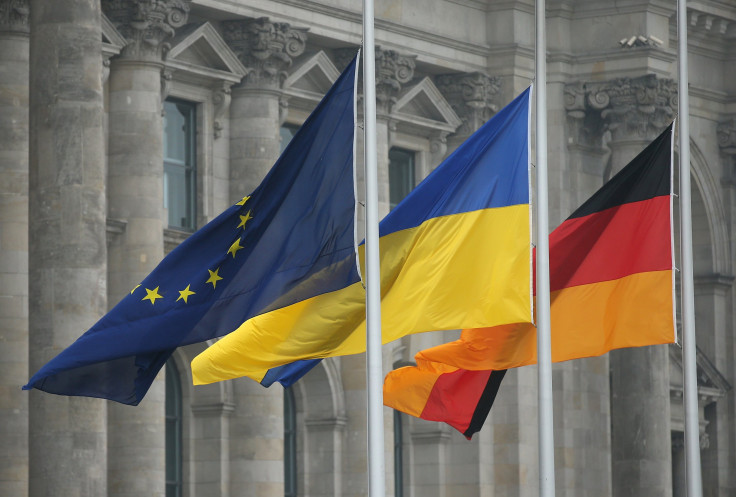Ukraine, EU To Discuss Free Trade Deal In Kiev

The European Union's Trade Commissioner Cecilia Malmström is scheduled to meet with Ukraine's top leaders in Kiev to move forward a discussion on the creation of a free trade agreement by the beginning of 2016.
Malmström will meet with Ukrainian President Petro Poroshenko, Prime Minister Arseniy Yatsenyuk, Foreign Minister Pavlo Klimkin and Minister for Economy and Trade Aivaras Abromavičiusto discuss the Deep and Comprehensive Free Trade Area (DCFTA) between Ukraine and the European Union by Jan. 1, a statement from the European Commission said Thursday.
The deal seeks to enhance trade relations between Ukraine and the EU by removing customs tariffs and quotas, and aligning Ukrainian regulations on several trade-related sectors to EU standards.
Last autumn, Russia initially tried to stop the free trade deal, according to a report from Ukraine Today, which added that Moscow threatened to impose an embargo on Ukrainian goods if the deal, which is a part of Ukraine’s Association Agreement with the European Union, came through. The association agreement was signed last March, after Viktor Yanukovych, Ukraine's former pro-Russian president, refused to sign it before his ouster.
Relations between Ukraine and Russia have worsened since the latter's annexation of the Crimean Peninsula in early 2014, and the subsequent secessionist struggle in eastern Ukraine led by pro-Moscow rebels.
Last month, Yatsenyuk and German Chancellor Angela Merkel met in Berlin and said they will move ahead with the free trade pact. "I want to say one more time that the Association Agreement which includes a free trade treaty is not directed against anyone," Merkel said last month, according to Deutsche Welle, adding that the deal was focused on the "opening of the Ukrainian market in the direction of Europe," and that it did not target Russia.
© Copyright IBTimes 2024. All rights reserved.






















